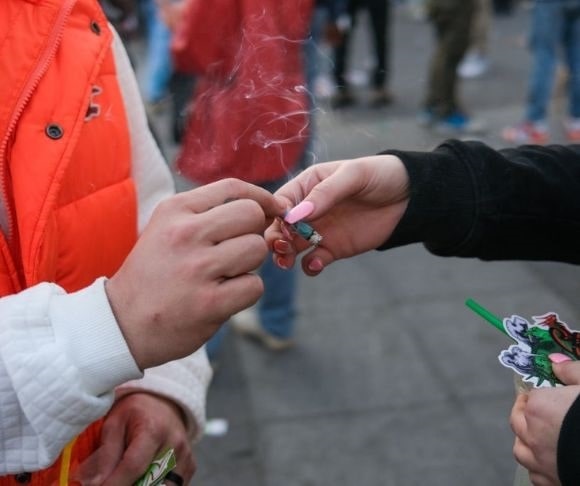The Drug-Free America Foundation recently conducted a study to contribute to the conversation surrounding cannabis use and mental health. In conjunction with Johnny’s Ambassadors, a youth marijuana prevention organization, their research team concluded that states with fewer legal restrictions on cannabis observe high use among teens and rising mental health issues. Another study by two UK academic institutions also found teens are at a higher risk than adults for cannabis addiction. As legalization becomes normalized in the United States, what will the effects be on teens and Americans in general?
Conflicts
 There is conflicting evidence regarding the relationship between marijuana, mental health, and addiction. Several studies have found that marijuana use can increase one’s risk for psychiatric disorders such as psychosis, anxiety, depression, or substance use disorders. The NIH has found “no association between marijuana use and mood anxiety disorders.” It did, however, conclude that there is a significant correlation with increased risk for alcohol use, drug use, and marijuana use disorders.
There is conflicting evidence regarding the relationship between marijuana, mental health, and addiction. Several studies have found that marijuana use can increase one’s risk for psychiatric disorders such as psychosis, anxiety, depression, or substance use disorders. The NIH has found “no association between marijuana use and mood anxiety disorders.” It did, however, conclude that there is a significant correlation with increased risk for alcohol use, drug use, and marijuana use disorders.
Other studies suggest that “smoking high-potency marijuana every day could increase the chances of developing psychosis by nearly five times compared to people who have never used marijuana.” Age, amount of use, and genetics also play critical roles in the links between use and psychiatric disorders. But the legalization of marijuana is opening doors for new avenues of research, such as that recently conducted by the Drug-Free America Foundation.
Conclusions
The study was first released by The Center Square, which reported “an association between adolescent cannabis use, the use of high potency cannabis products, and increased risk of psychosis.”

(Photo by Alexi Rosenfeld/Getty Images)
According to the study, “a difference-in-means test demonstrated that cannabis use is higher among all age groups in more highly permissive states, with 47% more monthly cannabis use among adolescents (ages 12-17) and 81% more monthly cannabis use among young adults (ages 18-25) in U.S. states with fully legalized recreational cannabis programs than states where cannabis use has not been legalized.” Subsequently, “mean averages for major depressive events, severe mental illnesses, and suicidal thoughts all increased” in states with fewer legal restrictions.
The Drug-Free America Foundation has not proven causation. They have simply detected a correlation and are asking for a thorough look into this complex relationship between marijuana use, legalization, and mental health issues. Moving forward, legalization is only expected to develop, which will, in turn, expand the market. Amy Ronshausen, the Drug-Free America Foundation executive director, says market competition has only pushed producers to make their products stronger. She is concerned about how little we know about new, potent varieties that claim to contain up to 90% THC (the psychoactive compound within the plant). The issue with teenagers is their brains are still developing. Daily marijuana use at a young age can have adverse and long-lasting effects on cognitive development, impacting one’s life permanently.
Nora D. Volkow, the National Institute on Drug Abuse director, warns, “contrary to popular belief, marijuana can be addictive, and its use during adolescence may make other forms of problem use or addiction more likely.”
Cannabis Addiction?

(Photo by Alexi Rosenfeld/Getty Images)
Cannabis addiction is a controversial topic. Many claim that marijuana is non-addictive, while others like Volkow say it is. The University College London and King’s College London researchers released a study on July 1 that supports the position that it is, but more so among adolescents. Published in the Journal of Psychopharmacology, the study dictates that adolescents who use cannabis are no more likely to have higher occurrences of depression, anxiety, or psychotic-like symptoms than adults who use it. But it does find that “adolescents are over three times more vulnerable to developing a cannabis addiction than adults.”
The two academic groups across the pond did not consider the impact of legalization, but this was a general study compared among ages. The researchers suggest teens “should be proactively discouraged from regular cannabis use” even though they could not conclude a positive correlation with mental health issues. As legalization normalizes among US states, more research into its impact is expected.




